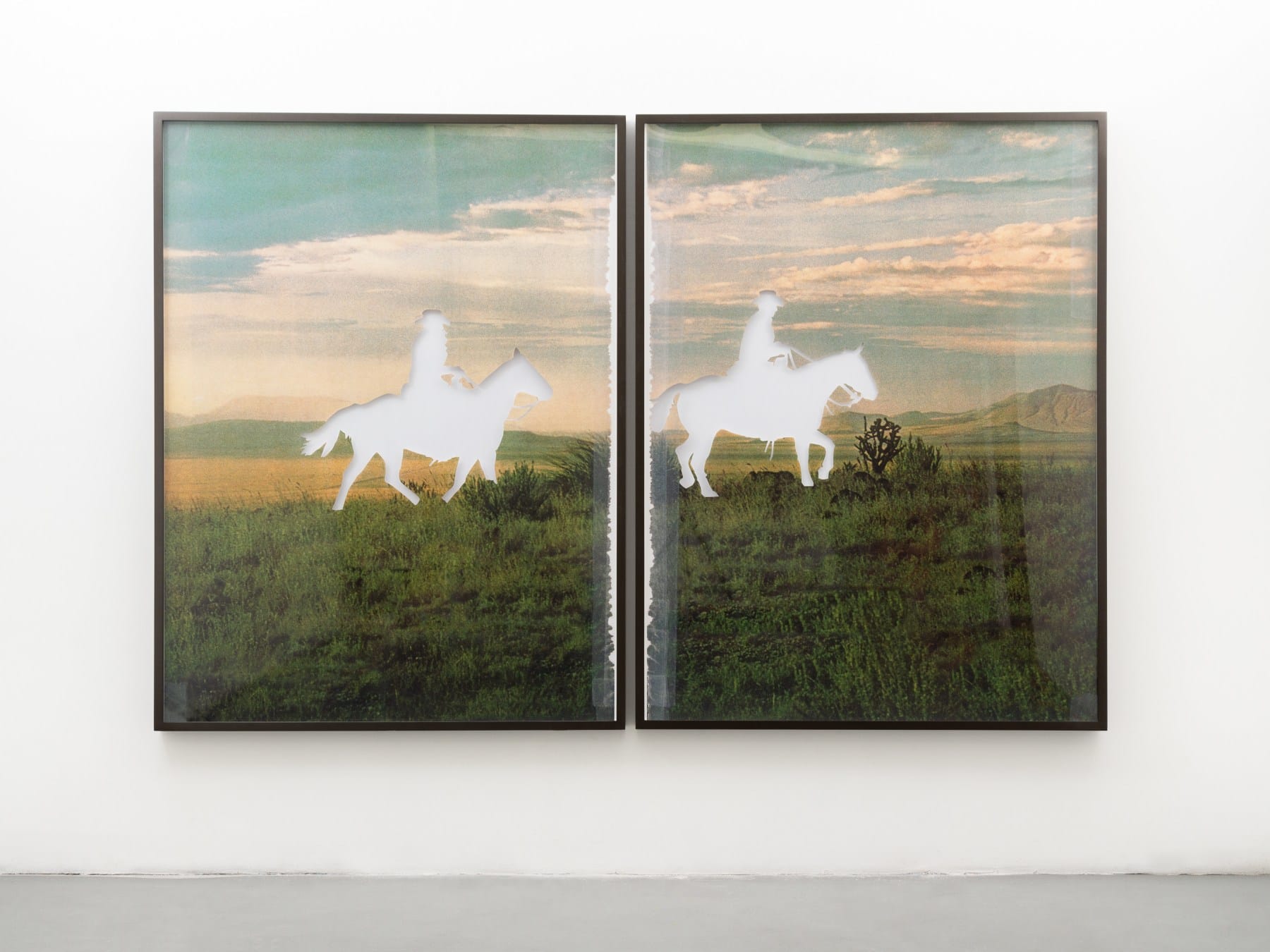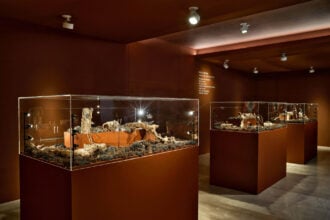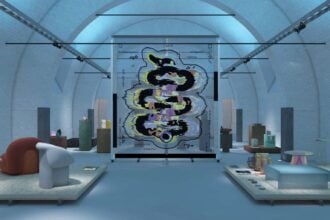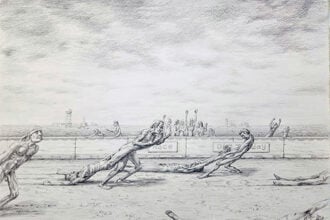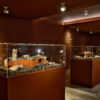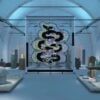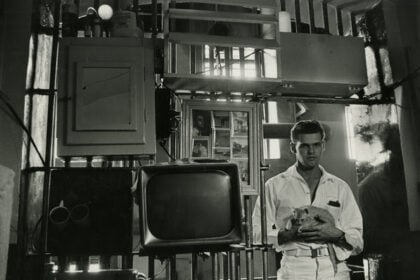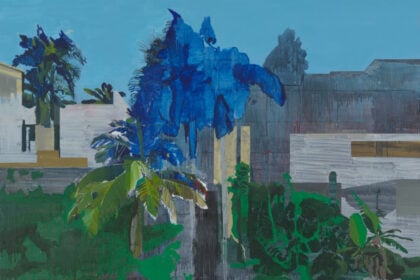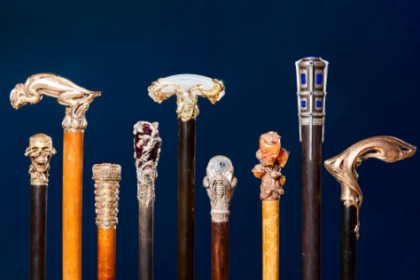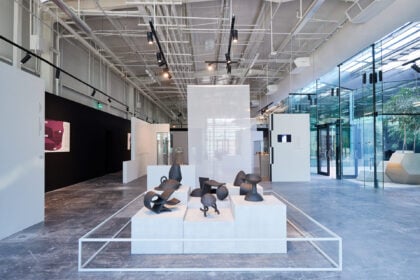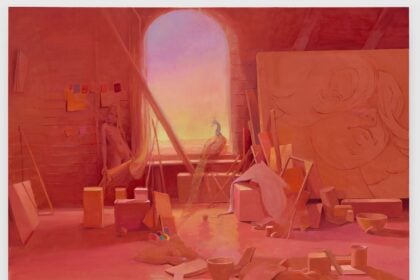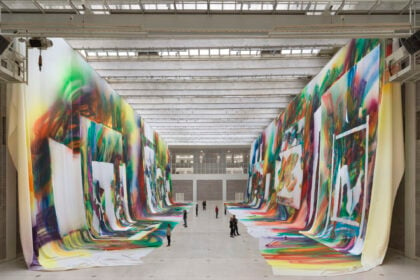Sean Kelly is delighted to announce Photographic Memory, Jose Dávila’s first exhibition at the Los Angeles gallery. Photographic Memory is comprised of a series of Dávila’s signature cut-out works, which reference Richard Prince’s solo exhibition at LACMA in 2018. The exhibition features large-scale photographic works in which Dávila has removed the main figure of Prince’s influential Untitled (cowboy) series. Challenging conventional connotations and limitations of photography in today’s image driven society, Dávila’s cut-outs interrogate originality, appropriation, and the truth behind an image. There will be an opening reception on Saturday, January 20, from 5-7pm. The artist will be present.
Dávila began making cut-outs in 2008, an ongoing series in which he simultaneously pays homage to and critiques icons of 20th century art and architecture through acts of excision, physically removing the central subject from photographic reproductions of original works of art. With these works, Dávila investigates whether an artwork can be produced through a reductive rather than additive process. This technique is inspired by the Mexican folk-art tradition of papel picado or Cut-Paper, which Dávila applies to contemporary art to explore the importance of negative space.
Dávila revisits Richard Prince’s series in which he photographed and enlarged widely recognized advertisements for Marlboro cigarettes featuring imagery of cowboys on horseback in iconographic American Western landscapes. Prince cropped the advertisements to remove any text and left the torn edges and tape as a reminder of their original context in mass-market magazines. This controversial practice raises questions about what constitutes an original work of art. Dávila’s photographs, similarly scaled at up to six feet high by eight feet wide, include the uneven edges and tape to pay homage to, and keep the conceptual and theoretical congruency of, the works referenced. Dávila takes the conversation a step further by removing the focal point of the image, transforming the scenes into a poetic discourse about the power of negative space. “By subtracting the main subject, I intend to compel the viewer to perform a creative act, because they have to somehow fill in that central image from their memory and imagination,” states Dávila. “Even if it’s an image you’ve seen many times, whatever you might recall might not be the same thing that I recall.”
In Photographic Memory, Jose Dávila explores the boundaries of artistic influence, skillfully intertwining homage and critique. He simultaneously challenges authorship through the alteration of iconic images to create new artworks and a distinctive oeuvre all his own.
Jose Dávila has presented solo exhibitions at the Museum Haus Konstruktiv, Zürich, Switzerland; Dallas Contemporary, Texas; JUMEX Museum, Mexico City; Hamburg Kunsthalle, Hamburg and the Museo del Novecento, Florence, amongst others. His work is in the permanent collection of numerous institutions including the Museo Universitario Arte Contemporáneo (MUAC), Mexico City, Mexico; Museo Nacional Centro de Arte Reina Sofía, Madrid, Spain; Inhotim, Brumadinho, Brazil; the Perez Art Museum, Miami, Florida; the Buffalo AKG Art Museum, Buffalo, New York; the San Antonio Museum of Art, San Antonio, Texas, the Solomon R. Guggenheim Museum, New York; the Centre Pompidou, Paris; Hamburg Kunsthalle, Hamburg; and the Museum of Modern Art, Luxembourg. Dávila was the winner of the 2016 BALTIC Centre for Contemporary Art’s New Annual Artists’ Award, Artists honoree of the Hirshhorn Museum in Washington DC in 2016, the 2014 EFG ArtNexus Latin America Art Award, and has been the recipient of support from the Andy Warhol Foundation, a Kunstwerke residency in Berlin, and the National Grant for young artists by the Mexican Arts Council (FONCA) in 2000. In 2022, Hatje Cantz published a major monograph illustrating the past twenty years of Davila’s practice.
